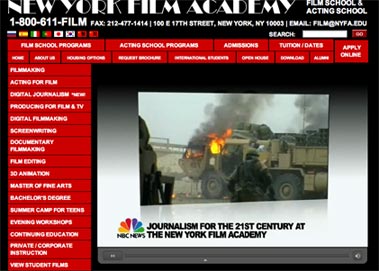The Nashua Telegraph‘s decision to publish a 15-minute video of Sidney Blumenthal, aide to presidential candidate Hillary Clinton, while he was in police custody has been criticised by media commentator Roy Greenslade.
Writing on his blog, the former editor of The Daily Mirror said the video was ’embarrassing, humiliating and overly intrusive’.
“To show the footage of a person undergoing ritual humiliation while in police custody is a disgraceful act. It serves no public interest whatsoever,” he wrote.
Damon Kiesow, managing editor and online editor of the Telegraph, told Journalism.co.uk that the decision to publish the video was ‘typical practice’:
“During the course of our coverage we have published booking photos, police records and court documents related to the case. This is typical practice for us. In fact the story with the video also included a PDF containing nine pages of records including the sentencing document.”
Far from seeking to ‘humiliate’ Blumenthal, Kiesow said the paper – and other US media – had previously been accused of covering up his arrest by not reporting it immediately to protect Clinton’s election campaign.
“The Telegraph has been publishing video on the Web for almost three years. During that time we have published numerous court-related segments including police interviews and court hearings.
“Some have been very graphic and painful in detail but were published due to a significant local interest in the stories.
“The Nashua Police Department only recently implemented the technology that makes it possible for us to gain access to booking videos. Blumenthal is the second booking video we have requested, the first was not published due to technical difficulties on our end.”
Publishing the video was not an attempt to cast aspersions on Blumenthal, but was intended to give readers the opportunity to make up their own minds – with all the information provided.
“I think Roy Greenslade frames the question ‘why publish’ in exactly the wrong way, and by doing so pre-supposes both the answer and the potential public reaction to the video. In fact, this was the first story in our coverage that garnered any positive reader comments for Blumenthal.
“Obviously those predisposed to support or oppose Blumenthal will interpret it as they want. But it is not our place to try and guess what those interpretations are. We felt in this case, and in general, that supplementing our reporting with source documents is the best way to let readers make up their own minds.”
Is there an issue here about the medium: is multimedia content such as this more intrusive, as Greenslade suggests, and therefore arguably less in the public interest? Or does it better serve the readers by giving them all the information available?
